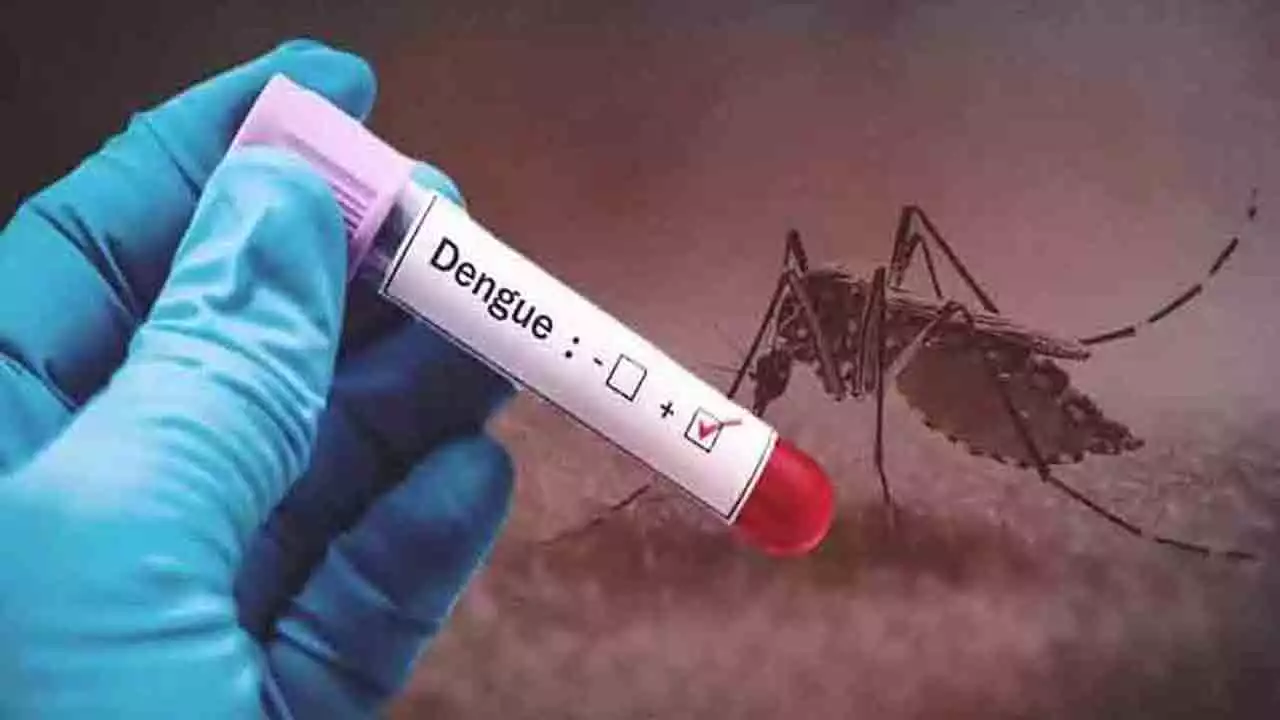The province of Punjab is witnessing a sharp rise in dengue cases, with alarming numbers reported from various districts. According to the spokesperson of the Punjab Health Department, 129 cases were recorded in Rawalpindi alone, with additional cases being reported from other cities such as Lahore, Bahawalpur, Gujranwala, Sargodha, and Chakwal. The ongoing outbreak has prompted the health authorities to reinforce their preventive measures and urge the public to stay vigilant.
Breakdown of Dengue Cases Across Districts
Rawalpindi has emerged as the hotspot for dengue, with the highest number of cases—129—reported in just one week. Lahore, the provincial capital, reported nine new cases, followed by four in Bahawalpur. The districts of Gujranwala and Sargodha saw three cases each, while two cases were recorded in Chakwal.
Other districts have also reported isolated cases of dengue, including Sheikhupura, Jhelum, Faisalabad, Sahiwal, Toba Tek Singh, Muzaffargarh, Khanewal, Jhang, Gujarat, and Pakpattan, each reporting one case. Though these numbers may seem lower compared to Rawalpindi and Lahore, they highlight the wide geographical spread of the dengue virus in the province.
Rising Trend in Dengue Cases
According to the health department spokesperson, Punjab has reported a total of 885 cases in just one week, indicating a worrying upward trend. The cumulative number of dengue cases in the province for the year has now reached 3,136. These figures are a stark reminder that dengue remains a significant public health threat, especially as the mosquito breeding season continues during the monsoon months.
Dengue is transmitted by the Aedes mosquito, which breeds in stagnant water and is more prevalent during the rainy season. The rise in cases can be attributed to the increase in mosquito breeding sites, inadequate sanitation, and humid weather conditions, which favor the spread of the virus.
Health Department’s Response to the Dengue Outbreak
In response to the growing number of dengue cases, the Punjab Health Department has assured the public that all necessary measures have been taken to prevent the further spread of the disease. According to the department’s spokesperson, all government hospitals have been stocked with the required medicines to treat dengue patients. Additionally, preventive medicines and dengue treatment protocols are in place, ensuring that healthcare facilities are equipped to handle any surge in patient numbers.
Hospitals in Rawalpindi, Lahore, and other affected cities have set up dedicated dengue wards where specialized care is provided to patients. The health department has also directed district administrations to conduct fumigation drives, eliminate mosquito breeding sites, and raise awareness among citizens about the steps they can take to protect themselves from mosquito bites.
Preventive Measures and Public Awareness
While the health department is actively working to contain the dengue outbreak, they emphasize the critical role that public awareness and individual responsibility play in preventing the spread of the virus. The department urges citizens to take necessary precautions, including keeping their homes and surroundings clean, covering water containers, and using mosquito repellents.
Preventive measures such as wearing full-sleeved clothing, using mosquito nets, and ensuring that windows and doors have screens are also highly recommended. Additionally, people are advised to avoid keeping stagnant water in areas such as flower pots, open containers, and rooftop tanks, as these are prime breeding grounds for mosquitoes.
The health department has launched an awareness campaign, using mass media, social media, and community outreach programs to educate the public about dengue prevention. Local health workers are also conducting door-to-door visits to spread awareness and ensure that households are taking the necessary steps to protect themselves.
Collaborative Efforts to Combat Dengue
The government is working in collaboration with local authorities, non-governmental organizations, and community leaders to tackle the dengue outbreak. Health teams are being dispatched to high-risk areas to conduct larval surveillance and fumigation operations. These teams are tasked with identifying and eliminating mosquito breeding sites, as well as educating local residents on how to prevent mosquitoes from multiplying.
In addition to fumigation efforts, the health department has set up rapid response teams to monitor the situation closely. These teams are responsible for ensuring that all dengue patients receive timely and appropriate care, reducing the risk of complications. They are also actively involved in tracking new cases and reporting them to the health department so that the spread of the disease can be monitored in real-time.
The surge in dengue cases across Punjab, particularly in Rawalpindi and Lahore, is a matter of concern for both the public and the health authorities. The ongoing efforts by the health department, including preventive measures and public awareness campaigns, are aimed at controlling the outbreak and minimizing the number of new cases.
However, the responsibility to curb the spread of dengue lies not only with the government but also with the public. By taking personal precautions and adhering to the guidelines issued by the health authorities, citizens can contribute to the fight against dengue. As the situation evolves, continuous efforts from both the government and the public will be essential in preventing further outbreaks and protecting the health of the community.



